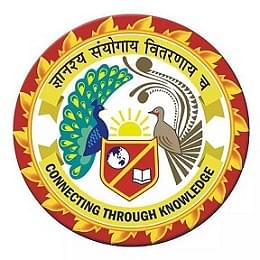Press Pass:
Navigating a Journalism Degree
Introduction: Stepping into the World of
Journalism
Embarking on a BA in Journalism is an
exhilarating journey filled with unique challenges and opportunities. This
degree not only hones your writing and reporting skills but also immerses you
in the dynamic world of media. As you navigate this path, you'll encounter a
variety of experiences that shape your understanding of journalism. In this
blog, we will explore the key aspects of a journalism degree and provide
insights on making the most of your academic journey.
1. The Curriculum: A Broad Spectrum of
Learning
The curriculum for a BA in Journalism is
designed to cover a wide range of topics. From learning the basics of news
writing and reporting to exploring multimedia journalism and digital
storytelling, you'll gain comprehensive knowledge of the field. Courses often
include:
- News Writing and Reporting: The
foundation of journalism, focusing on accuracy, clarity, and fairness.
- Media Ethics and Law:
Understanding the ethical and legal responsibilities of journalists.
- Multimedia Journalism: Using
various platforms and tools to tell compelling stories.
- Investigative Journalism:
Techniques for in-depth reporting and uncovering hidden truths.
By engaging with these diverse subjects, you
develop a well-rounded skill set that prepares you for the multifaceted nature
of journalism at best 5 universities in Jaipur.
2. Practical Experience: Internships and
Workshops
One of the most valuable aspects of a
journalism degree is the emphasis on practical experience. Internships at
newspapers, magazines, television stations, or digital media outlets are
crucial for gaining real-world insights. They allow you to apply classroom
knowledge to actual reporting scenarios, build a professional network, and
enhance your resume.
Workshops and seminars conducted by industry
professionals offer additional hands-on learning opportunities. These sessions
often cover advanced topics such as investigative techniques, data journalism,
and multimedia production. Participating actively in these experiences is key
to mastering the art of journalism.
3. Developing a Unique Voice: The Importance
of Blogging
In the digital age, having a personal blog is
an excellent way to develop and showcase your journalistic voice. Blogging
allows you to experiment with different styles, topics, and formats. It also
provides a platform to build an online presence and connect with a broader
audience.
When starting your blog, consider focusing on
areas that interest you the most, such as politics, culture, technology, or
environmental issues. Regularly updating your blog with well-researched and
engaging content will not only improve your writing skills but also demonstrate
your commitment and passion to potential employers.
4. Networking: Building Professional
Relationships
Networking is a crucial part of a journalism
career. Attend industry events, join journalism associations, and participate
in online forums and social media groups. These platforms offer opportunities
to meet established journalists, editors, and other media professionals who can
provide guidance, mentorship, and job leads.
Building a strong LinkedIn profile and
engaging with professionals in your field can also enhance your networking
efforts. Remember, relationships built during your academic years can lead to
valuable opportunities down the line.
5. Embracing Technology: The Future of
Journalism
As technology continues to transform the media
landscape, it is essential for journalism students to stay updated with the
latest tools and trends. Familiarize yourself with digital journalism
techniques, including data visualization, social media reporting, and mobile
journalism. Understanding how to leverage technology to enhance storytelling
will make you a versatile and competitive journalist at best affordable college in Jaipur.
Moreover, staying informed about developments
in artificial intelligence, virtual reality, and other emerging technologies
can give you an edge in the evolving field of journalism. Embrace these
innovations to stay ahead of the curve and remain relevant in the industry.
6. Overcoming Challenges: Resilience and
Adaptability
The journey through a journalism degree is not
without its challenges. Deadlines, competitive environments, and the constant
demand for creativity can be daunting. However, developing resilience and
adaptability is crucial for success. Learn to manage your time effectively,
stay organized, and seek support from peers and mentors when needed.
Moreover, be prepared to face criticism and
setbacks. Constructive feedback is an integral part of the learning process.
Use it to refine your skills and grow as a journalist. Remember, every
challenge is an opportunity to learn and improve.
Conclusion: Navigating Your Path to Success
A BA in Journalism offers a rich and rewarding
journey filled with learning, growth, and excitement. By embracing the diverse
curriculum, gaining practical experience, developing a unique voice, building
professional relationships, and staying updated with technological
advancements, you can navigate this path successfully.
As you progress through your degree, remember
that passion, dedication, and a commitment to ethical journalism are key to
making a meaningful impact in the media world. Your press pass to success lies
in your hands—use it wisely to tell stories that matter and make a difference at top 10 colleges in Jaipur.













